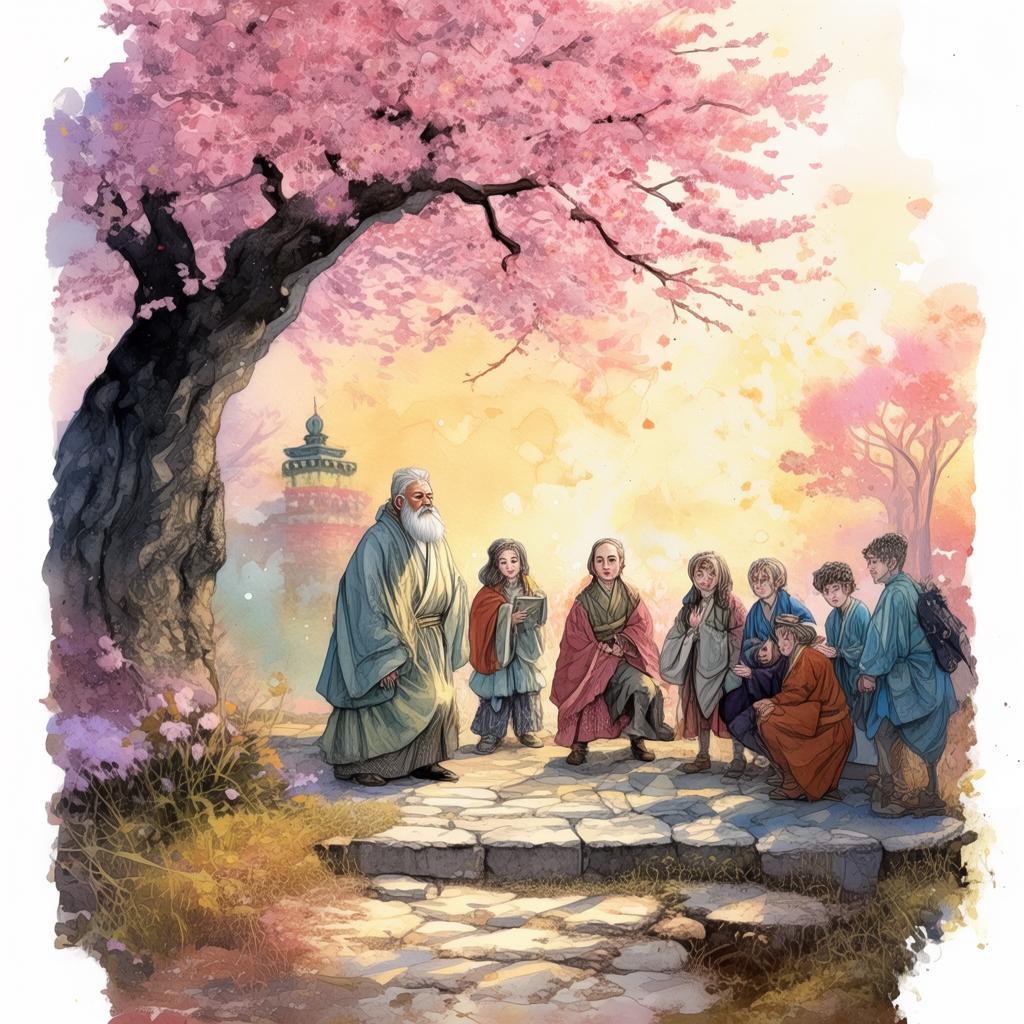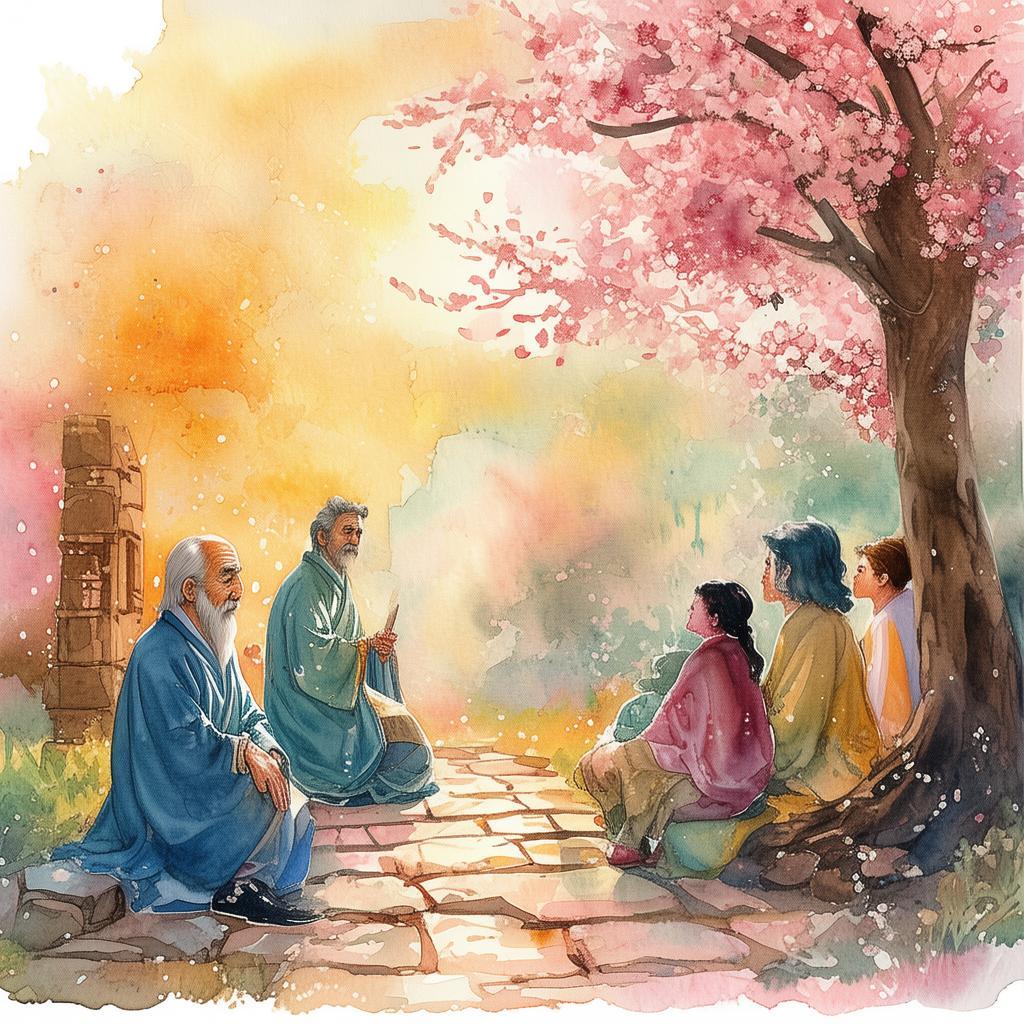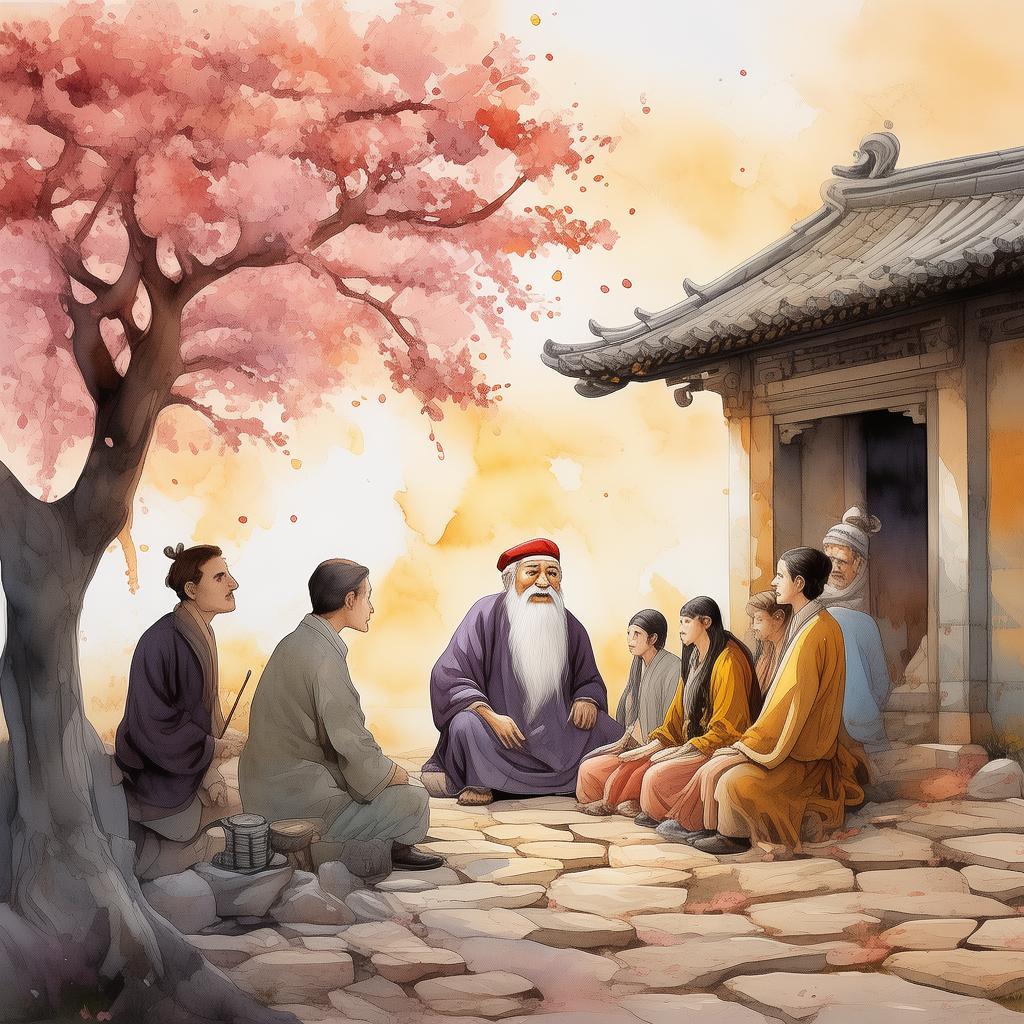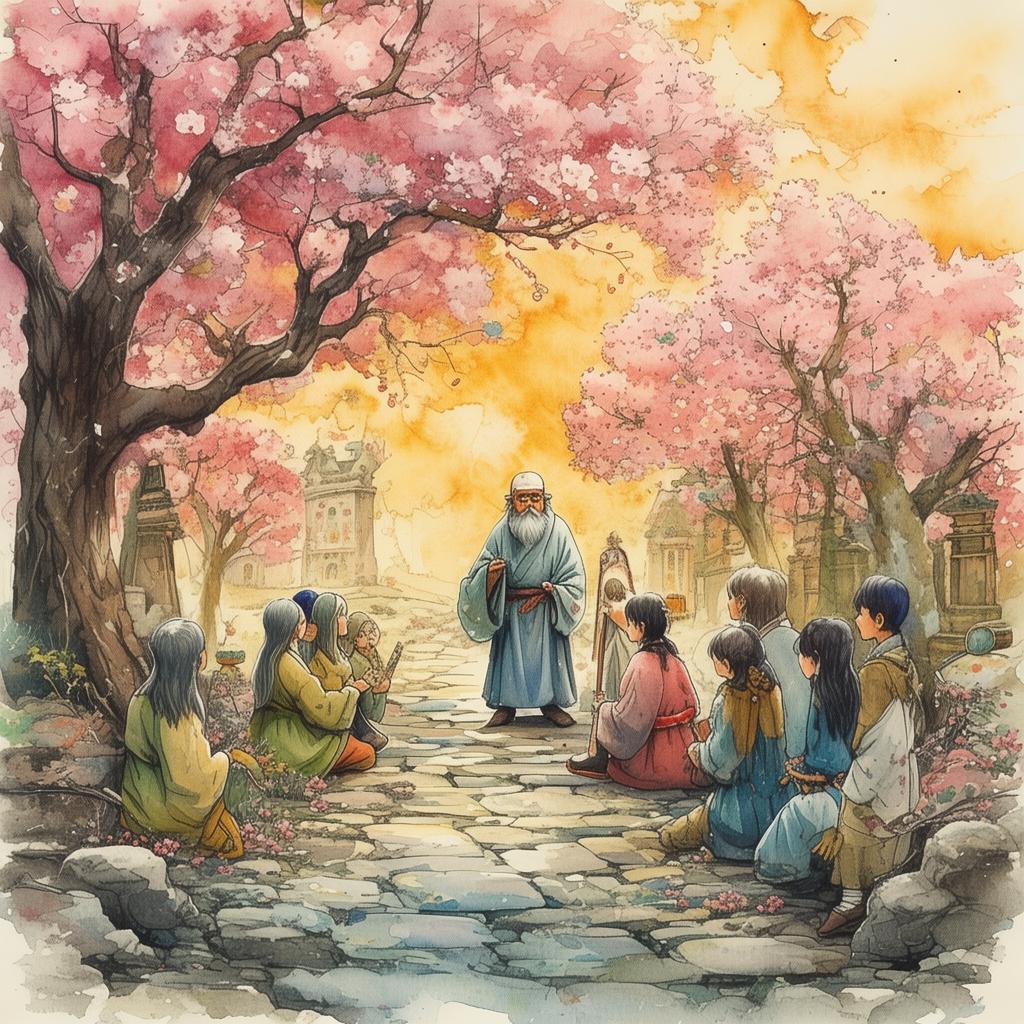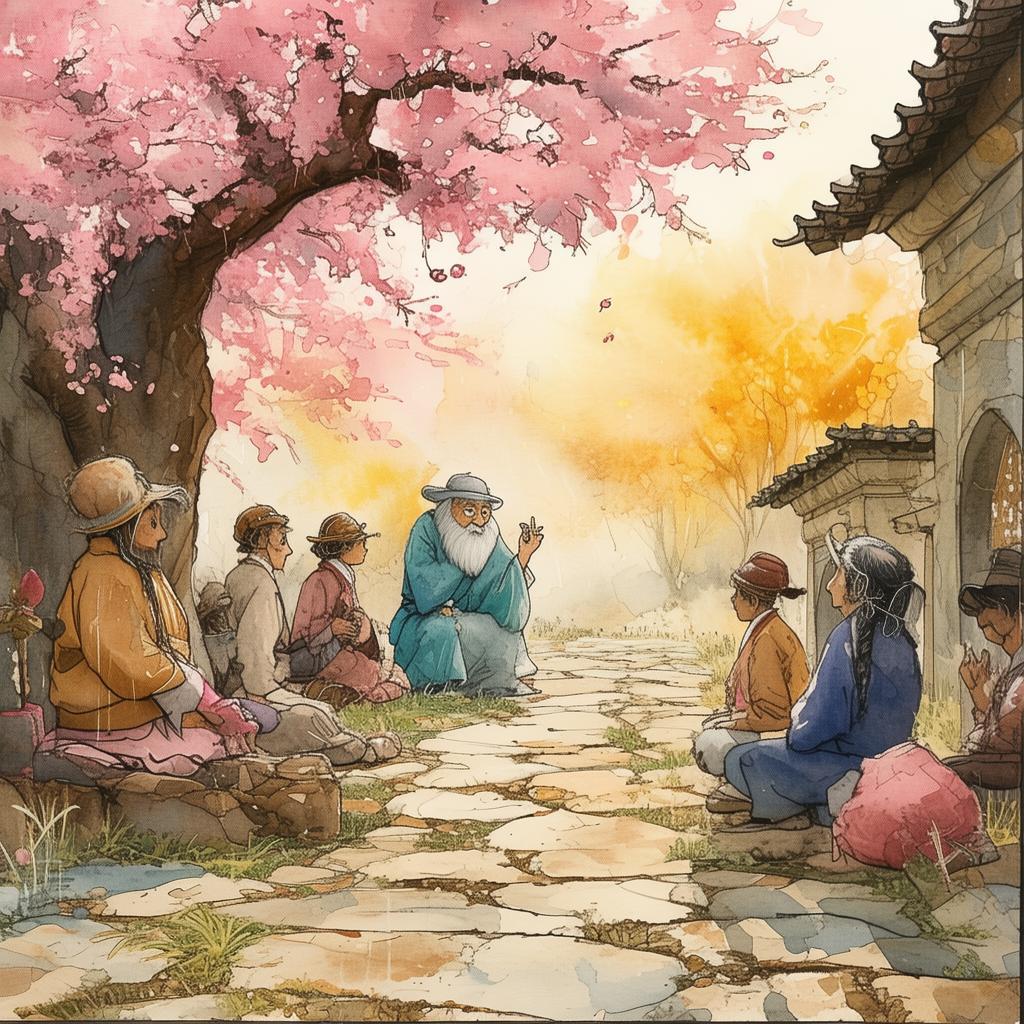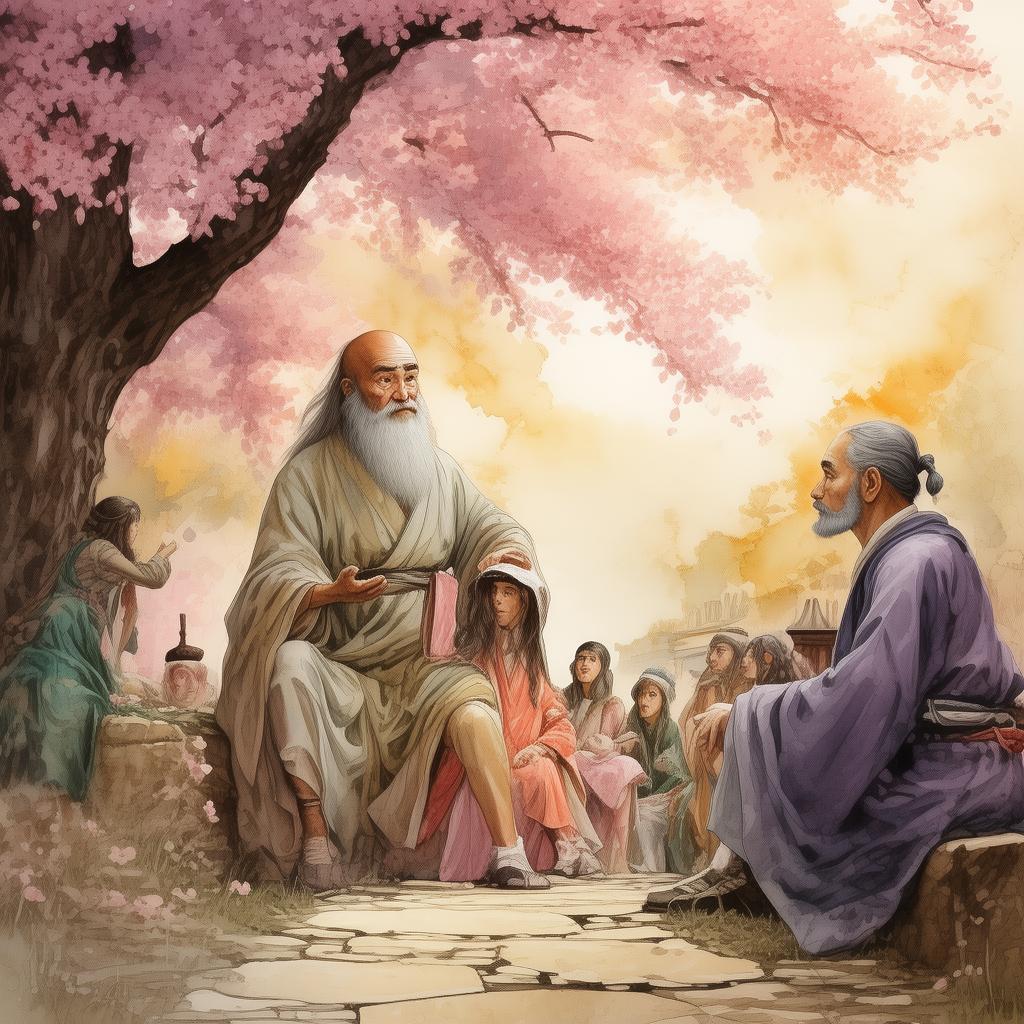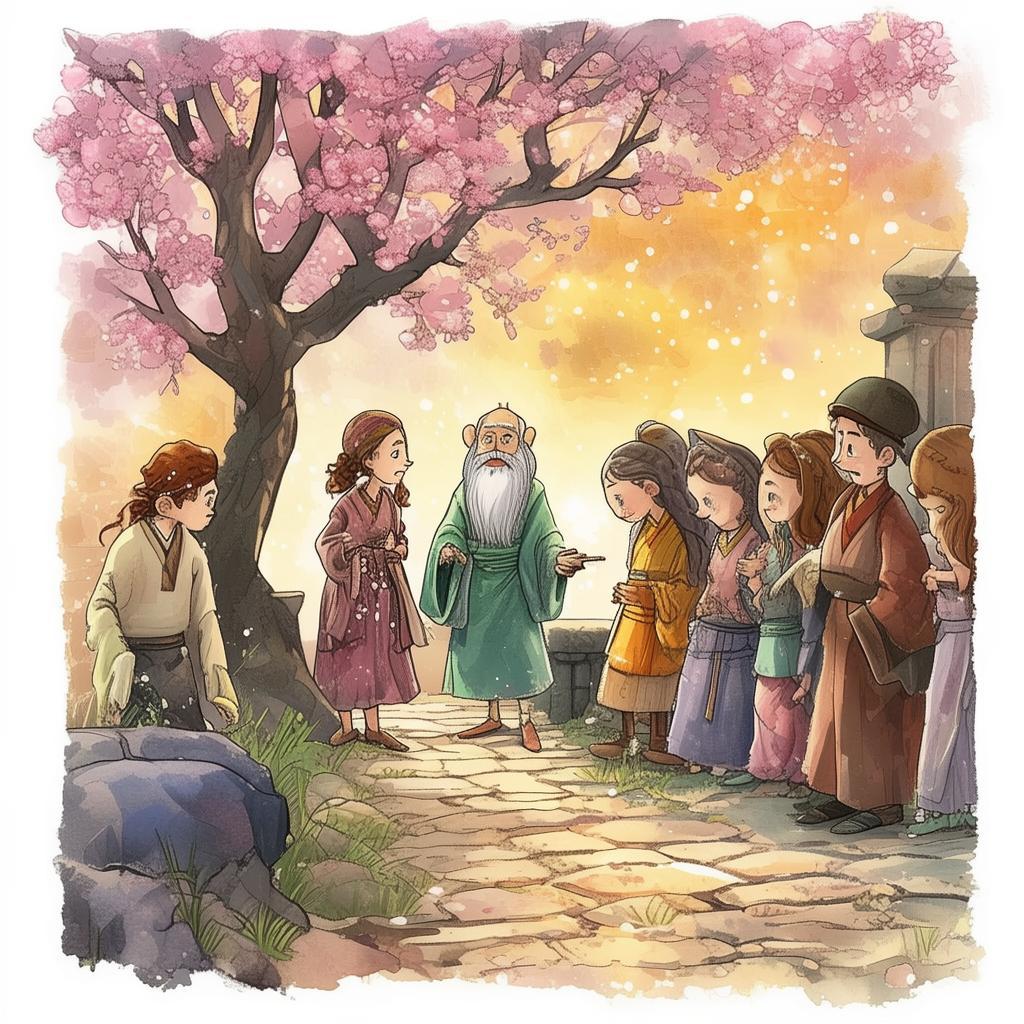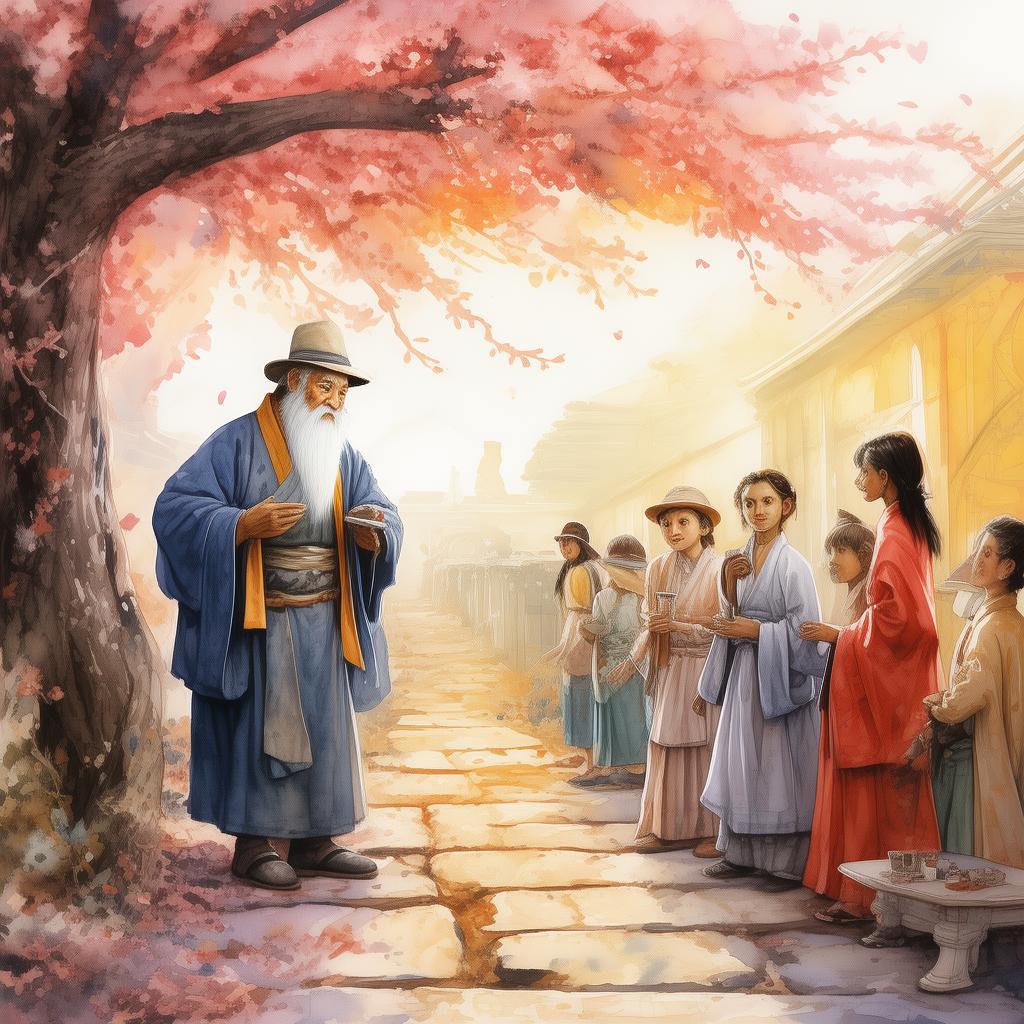The Tiger's Oath: A Journey of Honor and Betrayal
In the heart of ancient Japan, where the cherry blossoms danced like spirits in the gentle spring breeze, there lay a village bound by the strict codes of the samurai class. The village of Tsubaki was known for its tranquil beauty and the valor of its inhabitants, who had sworn an oath of loyalty and honor to the shogun.
Amidst this serene backdrop was a young samurai named Kaito, whose life was about to be turned upside down. Kaito was not just any samurai; he was the son of the village elder, a man respected and feared for his martial prowess and unwavering integrity. Kaito, with his sharp eyes and agile movements, was destined to follow in his father's footsteps.
The story begins with Kaito's coming-of-age ceremony, a ritual that marked his passage into manhood and his induction into the samurai ranks. His father, a man known as Kiyomasa, stood before the assembled villagers, his eyes reflecting the weight of tradition and the promise of his son's future.
"Kaito," Kiyomasa began, his voice resounding with the solemnity of the moment, "today you take the Tiger's Oath. From this day forward, you shall be bound by the samurai code. Your actions will reflect not only upon yourself but upon your lineage, your village, and your shogun."
Kaito listened intently, the weight of his father's words pressing upon him. He felt a surge of pride, a sense of destiny that he was meant to uphold the samurai way with honor and valor.
As the years passed, Kaito honed his skills under his father's watchful eye. He became a master swordsman, a proficient archer, and a wise strategist. His reputation as a samurai spread far and wide, and he was sought out for his services by various lords and daimyo. Yet, despite the praise and the power, Kaito remained true to the samurai code, always mindful of the honor he owed to his ancestors and his village.
One day, a delegation arrived at Tsubaki. It was led by a man known for his cunning and his ability to bend others to his will, Lord Kazuo. Lord Kazuo had heard of Kaito's prowess and sought his expertise in a matter of great importance.
The mission was clear: to infiltrate a rival village, gather intelligence, and return with the knowledge that could tip the scales in a pending war. Kaito, with his unwavering sense of duty, agreed to take on the task.
The journey was fraught with danger. Kaito infiltrated the rival village under the guise of a humble merchant, his mind sharp and his sword ever at the ready. He succeeded beyond all expectations, gathering intelligence that would ensure victory for his own village.
However, as Kaito prepared to return, he discovered a truth that would shatter his world. Lord Kazuo, the man who had commissioned the mission, was not what he seemed. He was a traitor, intent on using the information to start a war that would lead to the downfall of the shogunate and the rise of a new power under his control.
The betrayal was profound. Kaito, who had sworn to uphold the samurai code, found himself face-to-face with a man who had used him as a pawn in his twisted game. The irony was not lost on him; he was the very embodiment of the samurai's honor, yet it was his own mentor who had betrayed the trust of the village and the samurai class.
As Kaito confronted Lord Kazuo, the tension was palpable. "You have broken the samurai code," Kaito said, his voice steady despite the rage that boiled within him. "Your actions will not be forgotten."
Lord Kazuo sneered. "The code is but a tool of the weak. It is time for the strong to rise and take their place in the sun."
The battle that followed was fierce. Kaito fought with all his might, his sword a whirlwind of steel and resolve. Yet, even in the midst of the conflict, he could not bring himself to kill Lord Kazuo. The samurai code, as he had been taught, dictated that a samurai should never take a life without cause.
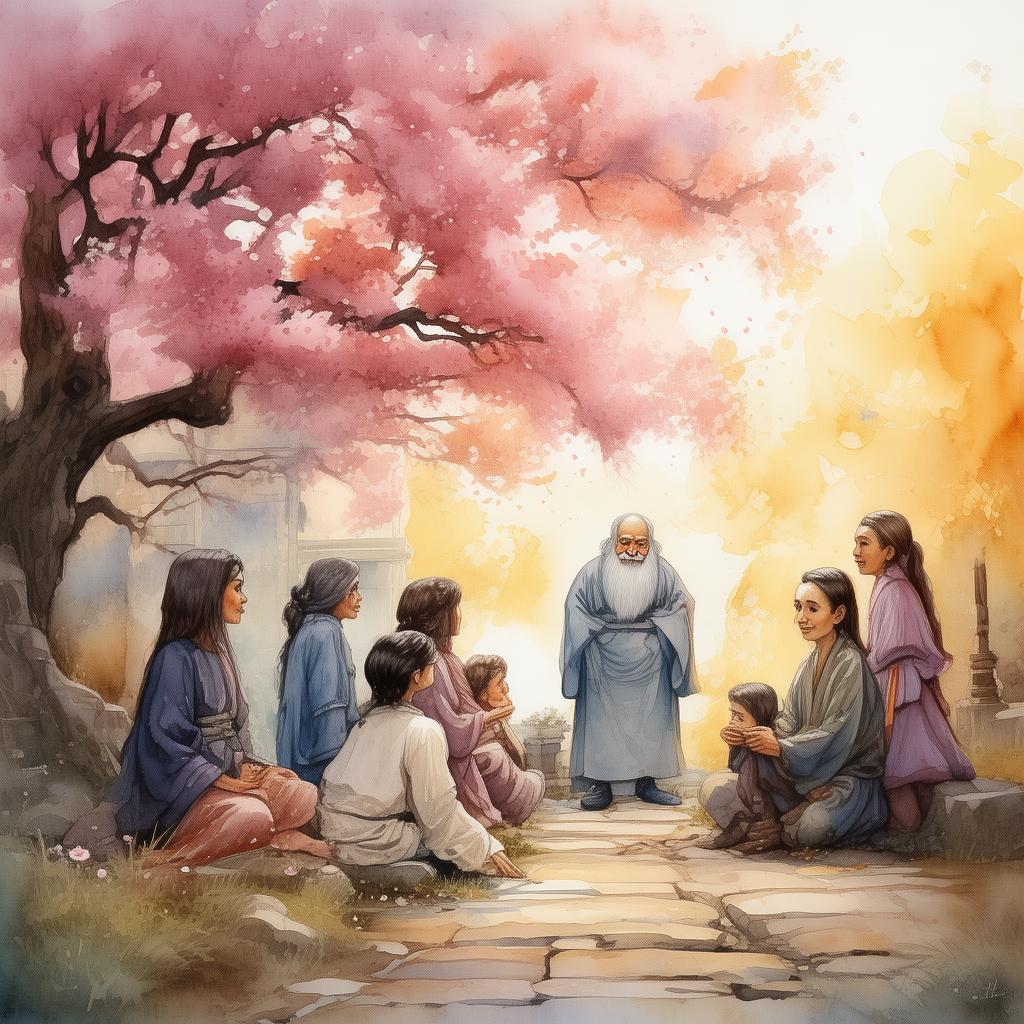
As the dust settled and the battle ended, Kaito found himself standing over the defeated Lord Kazuo. The man's eyes were filled with a mixture of fear and regret. "I have sinned," he whispered. "I have broken the samurai code."
Kaito looked down at the fallen man. "It is not for me to judge. But know this, Lord Kazuo: The code will not be broken so easily. It will stand, even if you do not."
With those words, Kaito turned on his heel and walked away, his heart heavy with the burden of his discovery. He returned to Tsubaki, a village that would soon be engulfed in war. Kaito, the samurai who had been chosen to lead, found himself at the center of a storm, torn between his loyalty to the samurai code and the need to protect his village.
The war was long and brutal, and Kaito's leadership was both praised and scrutinized. He fought with honor, always mindful of the Tiger's Oath he had taken. Yet, the shadow of betrayal lingered, a reminder that even the most sacred of promises could be broken.
In the end, Kaito's village emerged victorious. But the victory came at a great cost. Many lives had been lost, and the land lay desolate. As Kaito stood amidst the ruins, he realized that the samurai code was more than a set of rules; it was a way of life, a path to honor that he must continue to walk, even in the darkest of times.
And so, the tale of Kaito, the samurai who had taken the Tiger's Oath, continued to be told. It was a story of honor, betrayal, and the unyielding resolve to uphold one's duty, no matter the cost.
✨ Original Statement ✨
All articles published on this website (including but not limited to text, images, videos, and other content) are original or authorized for reposting and are protected by relevant laws. Without the explicit written permission of this website, no individual or organization may copy, modify, repost, or use the content for commercial purposes.
If you need to quote or cooperate, please contact this site for authorization. We reserve the right to pursue legal responsibility for any unauthorized use.
Hereby declared.
